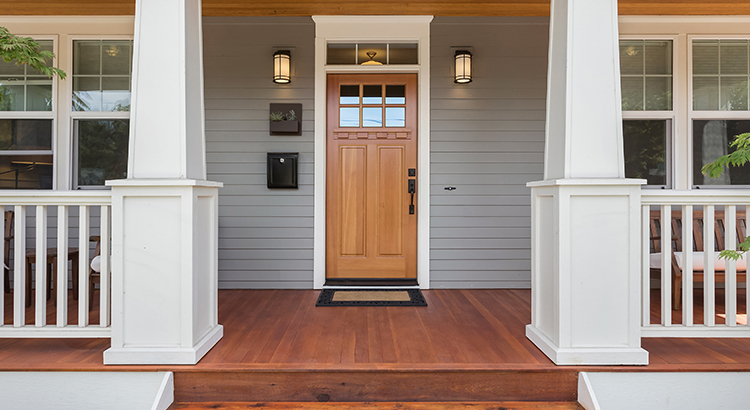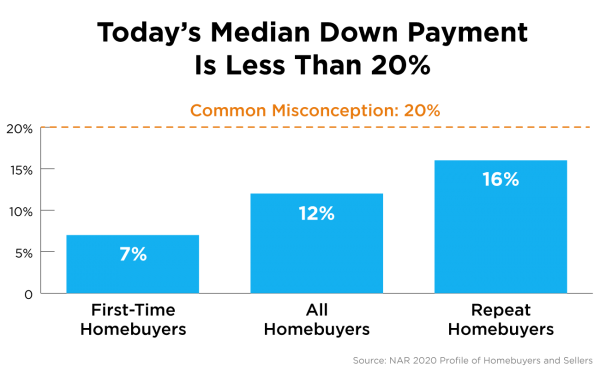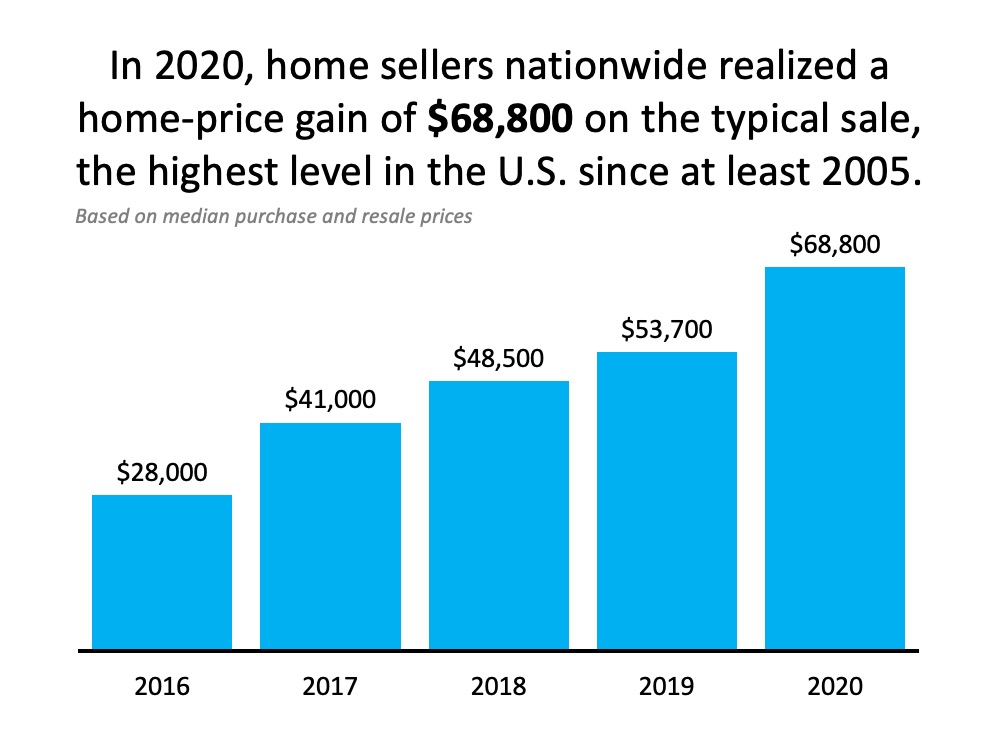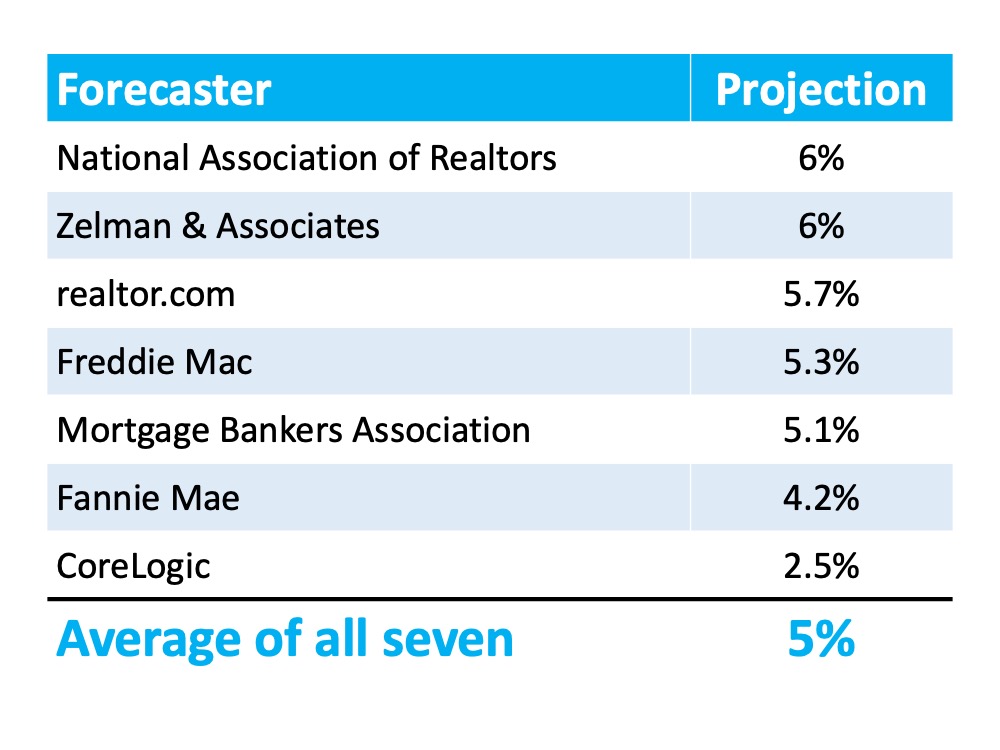6 Foundational Benefits of Homeownership Today

Over the past year, our homes have become an integral part of our lives more than ever. They’re much more than the houses we live in. They’re our workplaces, virtual schools, and safe havens that provide shelter, stability, and protection through the evolving health crisis. Today, 65.8% of Americans are fortunate enough to call their homes their own.
As we continue to think about the future, our goals for the year, and what we want to achieve well beyond 2021, it’s a great time to look at the benefits of owning a home. Below are some highlights and quotes on the benefits of homeownership shared by the National Association of Realtors (NAR). From feel-good motivations to economic and social impacts on the local community, these items may give you reason to believe homeownership stretches well beyond your financial investment.
Non-Financial Benefits
Owning a home brings a sense of happiness, satisfaction, and pride.
- Pride of Ownership: It feels good to have a place that’s truly your own, especially since you can customize it to your liking. “The personal satisfaction and sense of accomplishment achieved through homeownership can enhance psychological health, happiness and well-being for homeowners and those around them.”
- Civic Participation: Homeownership creates stability, a sense of community, and increases civic engagement. It’s a way to add to the strength of your local area and drive value into your neighborhood.
Financial Benefits
Buying a home is also an investment in your financial future.
- Net Worth: Homeownership builds your net worth. Today, the median household net worth of all homeowners is $254,900, while the median net worth of renters is only $6,270.
- Financial Security: Equity, appreciation, and more predictable monthly housing expenses are huge financial benefits of owning a home. Homeownership is truly the best way to improve your long-term financial position.
Economic Benefits
Homeownership is even a local economic driver.
- Housing-Related Spending: An economic force throughout our nation, housing-related expenses accounted for more than one-sixth of the country’s economic activity over the past three decades.
- Entrepreneurship: Homeownership is also a form of forced savings that can provide entrepreneurial opportunities. “Owning a home enables new entrepreneurs to obtain access to credit to start or expand a business and generate new jobs by using their home as collateral for small business loans.”
Bottom Line
The benefits of homeownership go well beyond the basics. Homeownership is truly a way to build financial freedom, find greater satisfaction and happiness, and make a substantial impact in your community. If owning a home is part of your dream this year, let’s connect so you can begin the homebuying process today.
No More Contingent Offers!

One of the challenges that we’re seeing in the real estate market is that potential sellers are hesitant to sell because they worry that they will be able to buy their next home. We can do a lot of things to make sure that the sellers have somewhere to move to.
Guild Mortgage has just made the lives of REALTORs a lot easier. Guild has brought a great program for sellers to buy their next home: a bridge loan. This is what they say:
“Guild has introduced its very own Bridge loans to help you motivate more listings, overcome client fears in a tight inventory market, and make stronger non-contingent offers.
Guild’s Bridge loans allow homeowners to potentially qualify for the next purchase without counting the debt of the home to be sold, while also allowing them to use the existing home equity as down payment on the new home before selling.”
For those that may not qualify for a true bridge loan, there are other options. The first, and still completely reasonable, is writing your purchase offer subject to the sale of your home. It is completely valid to make the offer with that contingency. People do it every single day. Guild has some other suggestions.
- Using Heloc to fund down payment and avoid contingent offers (must do before listed)
- Using retirement accounts to generate immediate qualifying income allowing to qualify for new purchase before selling
- Utilizing trust income (with no regard to how recent the Trust was created) to qualify non-contingent
- Rental credit on departing residence if retained to avoid contingent offers
- Self-employed financing strategies to potentially increase qualifying amounts
So, if you’re even thinking about selling your home and moving into something new, give me a call. We’ll chat about your options as both a seller and a buyer and how we can turn one into the other. We’ll also call Guild because they are great and get the job done.
Home Organization Resolutions That Will Keep You Organized In 2021
Why Owning a Home Is a Powerful Financial Decision

In today’s housing market, there are clear financial benefits to owning a home: increasing equity, the chance to build your net worth, and appreciating home values, just to name a few. If you’re a renter, it’s never too early to think about how homeownership can propel you toward a stronger future. Here’s a dive into three often-overlooked financial benefits of homeownership and how preparing for them now can steer you in the direction of greater financial security and savings.
1. You Won’t Always Have a Monthly Housing Payment
Personal finance advisor Dave Ramsey explains:
“Every payment brings you closer to owning the house. When you pay your rent, that money is spent. Gone. Bye. Not returning. But when you pay your mortgage, you work toward full ownership.”
As a homeowner, you can eventually eliminate the monthly payment you make on your house. That’s a huge win and a big factor in how homeownership can drive stability and savings in your life. As soon as you buy a home, your monthly housing costs begin to work for you as forced savings in the form of equity. When you build equity and grow your net worth, you can continue to reinvest those savings into your future, maybe even by buying that next dream home. The possibilities are truly endless.
2. Homeownership Is a Tax Break
One thing people who have never owned a home don’t always think about are the tax advantages of homeownership. The same article states:
“You have tax advantages. Many of the costs of owning a home—like property taxes—are tax deductible. And if you’re paying off a mortgage, you’ll get to count your mortgage interest as a deduction when you file your tax return.”
Whether you’re living in your first home or your fifth, it’s a huge financial advantage to have some tax relief tied to the interest you pay each year. It’s one thing you definitely don’t get when you’re renting. Be sure to work with a tax professional to get the best possible benefits on your annual return.
3. Monthly Housing Costs Are Predictable
A third benefit is the fact that monthly costs start to become more predictable with homeownership, something that doesn’t happen if you’re renting. Ramsey also notes:
“Rent rates will go up. Even if you found a killer deal in a hot area, inflation, competition, and rising property values will cause your rent to go up year after year.”
With a mortgage, you can keep your monthly housing costs relatively steady and predictable. Your monthly costs are most likely based on a fixed-rate mortgage, which allows you to budget your finances over a longer period of time. Rental prices have been skyrocketing since 2012, and with today’s low mortgage rates, it’s a great time to get more for your money when purchasing a home. If you want to lock-in your monthly payment at a low rate and have a solid understanding of what you’re going to spend in your mortgage payment each month, buying a home may be your best bet.
Bottom Line
If you’re ready to start feeling the benefits of stability, savings, and predictability that come with owning a home, let’s connect to determine if buying sooner rather than later is right for you.
These Are The Interior Design Styles Taking Over Pinterest
Do I Really Need a 20% Down Payment to Buy a Home?

Is the idea of saving for a down payment holding you back from buying a home right now? You may be eager to take advantage of today’s low mortgage rates, but the thought of needing a large down payment might make you want to pump the brakes. Today, there’s still a common myth that you have to come up with 20% of the total sale price for your down payment. This means people who could buy a home may be putting their plans on hold because they don’t have that much saved yet. The reality is, whether you’re looking for your first home or you’ve purchased one before, you most likely don’t need to put 20% down. Here’s why.
According to Freddie Mac:
“The most damaging down payment myth—since it stops the homebuying process before it can start—is the belief that 20% is necessary.”
If saving that much money sounds daunting, potential homebuyers might give up on the dream of homeownership before they even begin – but they don’t have to.
Data in the 2020 Profile of Home Buyers and Sellers from the National Association of Realtors (NAR) indicates that the median down payment actually hasn’t been over 20% since 2005, and even then, that was for repeat buyers, not first-time homebuyers. As the image below shows, today’s median down payment is clearly less than 20%.
What does this mean for potential homebuyers?
As we can see, the median down payment was lowest for first-time buyers with the 2020 percentage coming in at 7%. If you’re a first-time buyer and putting down 7% still seems high, understand that there are programs that allow qualified buyers to purchase a home with a down payment as low as 3.5%. There are even options like VA loans and USDA loans with no down payment requirements for qualified applicants.
It’s important for potential homebuyers (whether they’re repeat or first-time buyers) to know they likely don’t need to put down 20% of the purchase price, but they do need to do their homework to understand the options available. Be sure to work with trusted professionals from the start to learn what you may qualify for in the homebuying process.
Bottom Line
Don’t let down payment myths keep you from hitting your homeownership goals. If you’re hoping to buy a home this year, let’s connect to review your options.
Ignore the Groundhog. Please.
Want to Build Wealth? Buy a Home This Year.

Every year, households across the country make the decision to rent for another year or take the leap into homeownership. They look at their earnings and savings and then decide what makes the most financial sense. That equation will most likely take into consideration monthly housing costs, tax advantages, and other incremental expenses. Using these measurements, recent studies show that it’s still more affordable to own than rent in most of the country.
There is, however, another financial advantage to owning a home that’s often forgotten in the analysis – the wealth built through equity when you own a home.
Odeta Kushi, Deputy Chief Economist for First American, discusses this point in a recent blog post. She explains:
“Once you include the equity benefit of price appreciation, owning made more financial sense than renting in 48 out of the 50 top markets, with the only exceptions being San Francisco and San Jose, Calif.”
What has this equity piece meant to homeowners in the past?
ATTOM Data Solutions, the curator of one of the nation’s premier property databases, just analyzed the typical home-price gain owners nationwide enjoyed when they sold their homes. Here’s a breakdown of their findings:The typical gain in the sale of the home (equity) has increased significantly over the last five years.
CoreLogic, another property data curator, also weighed in on the subject. According to their latest Homeowner Equity Insights Report, the average homeowner gained $17,000 in equity in just the last year alone.
What does the future look like for homeowners when it comes to equity?
Here are the seven major home price appreciation forecasts for 2021:The National Association of Realtors (NAR) just reported that today, the median-priced home in the country sells for $309,800. If homes appreciate by 5% this year (the average of the forecasts), the homeowner will increase their wealth by $15,490 in 2021 through increased equity.
Bottom Line
As you make your plans for the coming year, be sure to consider the equity benefits of home price appreciation as you weigh the financial advantages of buying over renting. When you do, you may find this is the perfect time to jump into homeownership.
Turn to an Expert for the Best Advice, Not Perfect Advice

I admit it. I am a talking head. I take the information in the news, from coaches, from my broker, from the state, the Fed, financial advisors, and even from twitter, sift through it, match it up, digest it, and then spit it back out at you. That means that I know what I am talking about when I talk about the things I know about. But it isn’t everything. It isn’t my job to be an expert on everything. It is my job to be able to point my clients to the best places to find information, though!
As we approach the anniversary of the hardships we’ve faced through this pandemic and the subsequent recession, it’s normal to reflect on everything that’s changed and wonder what’s ahead for 2021. While there are signs of economic recovery as vaccines are being issued, we still have a long way to go. It’s at times like these we want exact information about anything we’re doing. That information brings knowledge, and this gives us a sense of relief and comfort in uncertain times.
If you’re thinking about buying or selling a home today, the same need for information is very real. But, because it’s such a big step in our lives, that desire for clear information is even greater in the homebuying or selling process. Given the current level of overall anxiety, we want that advice to be truly perfect. The challenge is, no one can give you “perfect” advice. Experts can, however, give you the best advice possible.
Let’s say you need an attorney, so you seek out an expert in the type of law required for your case. When you go to her office, she won’t immediately tell you how the case is going to end or how the judge or jury will rule. If she could, that would be perfect advice. What a good attorney can do, however, is discuss with you the most effective strategies you can take. She may recommend one or two approaches she believes will be best for your case.
She’ll then leave you to make the decision on which option you want to pursue. Once you decide, she can help you put a plan together based on the facts at hand. She’ll help you achieve the best possible resolution and make whatever modifications in the strategy are necessary to guarantee that outcome. That’s an example of the best advice possible.
The role of a real estate professional is just like the role of a lawyer. An agent can’t give you perfect advice because it’s impossible to know exactly what’s going to happen throughout the transaction – especially in this market.
I can, however, give you the best advice possible based on the information and situation at hand, guiding you through the process to help you make the necessary adjustments and best decisions along the way. I will lead you to the best offer available. That’s exactly what you want and deserve.
Bottom Line
If you’re thinking of buying or selling this year, let’s connect to make sure you get the best advice possible.



